He uses infrared lasers, cryotherapy machines, and a lot of stem cells.


Having a good sense of smell can help protect us from danger. Unfortunately though, humans don’t always have an efficient response to odors. However, a group of researchers aim to change that: They’ve created an “artificial nose” device that can quickly detect ammonia, gas, and sewage.
Researchers at the University of British Columbia’s Okanagan campus developed a microfluidic gas detector, which can sense most odors, including noxious substances, said a UBC Okanagan press release. The team, which published their findings in Nature Scientific Reports on Jan. 17, found that this device might be helpful in detecting fumes that aren’t easily noticed by humans.
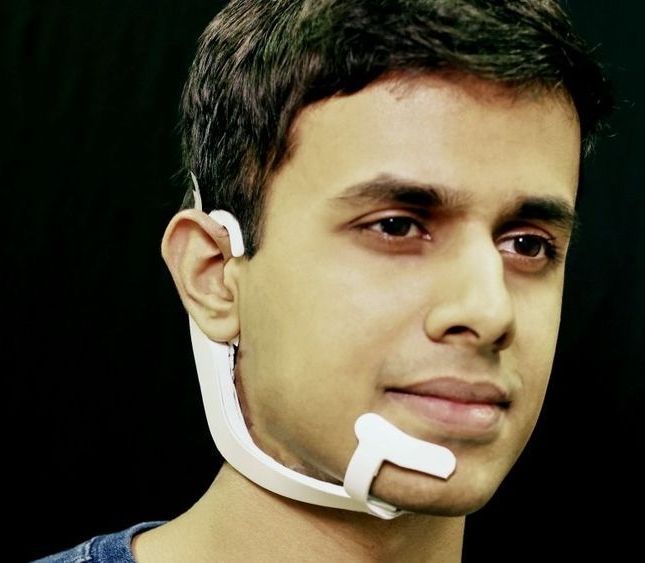
Plans for a European base on the moon have taken a major step forward.
The European Space Agency revealed it has signed up rocket maker ArianeGroup to develop plans for a moon base that could be used to mine material from the lunar surface.
The project will ‘examine the possibility of going to the Moon before 2025 and starting to work there’ — and could trigger a new space race as countries rush to harness lunar resources.
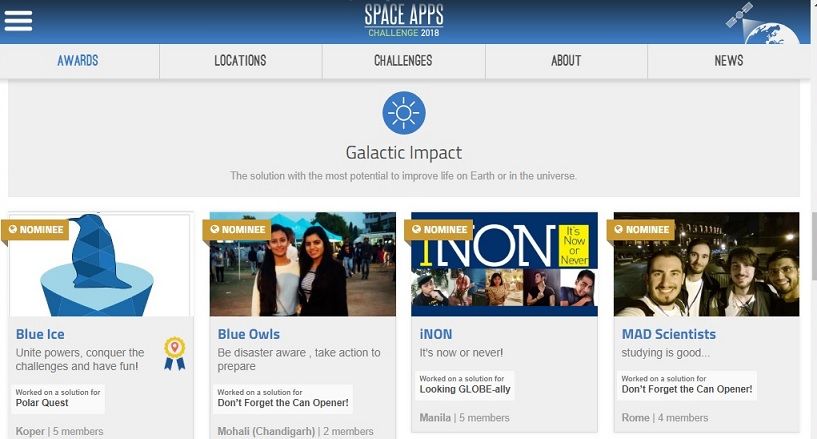
This is the first time that an entry from the Philippines has made it to the global finalists. http://verafiles.org/articles/filipino-it-experts-hope-nasa-…lenge-winn #SpaceApps #SpaceAppsPH
Filipino Information Technology enthusiasts are hoping that the temporary reopening of U.S. government operations after a 35-day shutdown would pave the way for the announcement of the winners in the NASA Space Apps Challenge, where one of the finalists is an app developed by a group of Filipino IT experts.
The announcement of the winners in the global competition was supposed to have been made in mid-January but has suffered a delay due to the federal government shutdown caused by a standoff over border security.
The shutdown, which began last Dec. 21, ended on Friday after U.S. President Donald Trump signed into law a funding measure that will allow the reopening of government operations until Feb. 15.
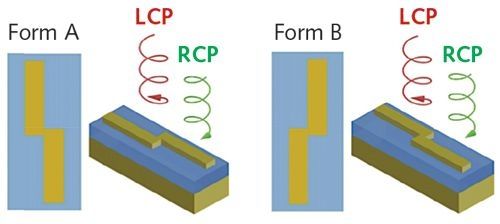
Chiral surfaces, which have differing responses for left- and right-handed circularly polarized (LCP and RCP) light, can be useful in optical experimentation. Metamaterials, which can be made into circular polarizers, are promising for creating chiral surfaces. Scientists at the Missouri University of Science and Technology (Rolla, MO) and the Argonne National Laboratory (Argonne, IL) have now created a chiral metamaterial-absorbing surface that has a large circular dichroism (CD) over the 1.3–1.8 μm spectral region. The chiral absorber could be useful for optical filters, thermal energy harvesting, optical communications, and chiral imaging.
A chiral optical metasurface selectively absorbs either left- or right-handed circularly polarized light; it could be useful in imagers and other optical systems.

We have launched a new webinar series featuring discussion panels with the researchers + Q&A session for patrons. The first episode hosted by Dr. Oliver Medvedik will feature Dr. Aubrey de Grey, Dr. Matthew O’Connor, Michael Rae, and Dr. Amutha Boominathan from the SENS Research Foundation.
If you are a Lifespan Hero you can join us live for the show and get access to the recording for a few months before the public release.
Our work is largely supported by the generosity of our monthly patrons, the Lifespan Heroes, and this year, we will be showing our appreciation for that support with the launch of a brand new initiative – our new webinar series where you can meet the scientists working on the solutions to aging and age-related diseases.
Introducing a new webinar series for Lifespan Heroes
As a special thank you to our monthly Patrons – The Lifespan Heroes, we are pleased to announce the launch of a new series of exclusive webinars where you can join researchers live, listen to discussion panels, and take part in Q&A sessions. This is the ideal place to meet the actual scientists working on ending age-related diseases and ask them about their exciting research.
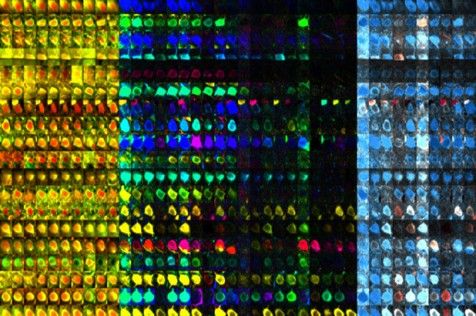
The adult brain has learned to calculate an image of its environment from sensory information. If the input signals change, however, even the adult brain is able to adapt − and, ideally, to return to its original activity patterns once the perturbation has ceased. Scientists at the Max Planck Institute of Neurobiology in Martinsried have now shown in mice that this ability is due to the properties of individual neurons. Their findings demonstrate that individual cells adjust strongly to changes in the environment but after the environment returns to its original state it is again the individual neurons which reassume their initial response properties. This could explain why despite substantial plasticity the perception in the adult brain is rather stable and why the brain does not have to continuously relearn everything.
Everything we know about our environment is based on calculations in our brain. Whereas a child’s brain first has to learn the rules that govern the environment, the adult brain knows what to expect and, for the most part, processes environmental stimuli in a stable manner. Yet even the adult brain is able to respond to changes, to form new memories and to learn. Research in recent years has shown that changes to the connections between neurons form the basis of this plasticity. But, how can the brain continually change its connections and learn new things without jeopardizing its stable representation of the environment? Neurobiologists in the Department of Tobias Bonhoeffer in Martinsried have now addressed this fundamental question and looked at the interplay between plasticity and stability.
The scientists studied the stability of the processing of sensations in the visual cortex of the mouse. It has been known for about 50 years that when one eye is temporarily closed, the region of the brain responsive to that eye increasingly becomes responsive to signals from the other eye that is still open. This insight has been important to optimize the use of eye patches in children with a squint. “Thanks to new genetically encoded indicators, it has recently become possible to observe reliably the activity of individual neurons over long periods of time,” says Tobias Rose, the lead author of the study. “With a few additional improvements, we were able to show for the first time what happens in the brain on the single-cell level when such environmental changes occur.”
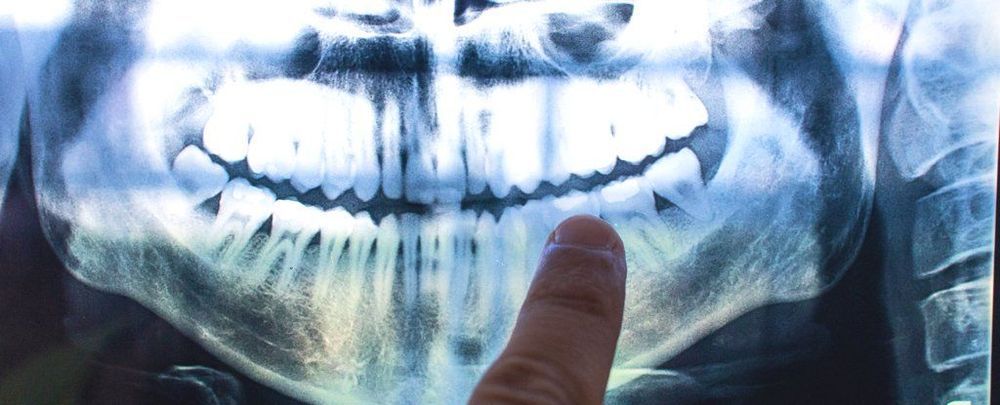
From the article:
In recent years, a growing number of scientific studies have backed an alarming hypothesis: Alzheimer’s disease isn’t just a disease, it’s an infection.
While the exact mechanisms of this infection are something researchers are still trying to isolate, a litany of papers argue the deadly spread of Alzheimer’s goes way beyond what we used to think.
Now, scientists are saying they’ve got one of the most definitive leads yet for a bacterial culprit behind Alzheimer’s, and it comes from a somewhat unexpected quarter: gum disease.
Trying to streamline an operation that spends more than $5 billion a year on developing new drugs, Novartis dispatched teams to jetmaker Boeing Co. and Swissgrid AG, a power company, to observe how they use technology-laden crisis centers to prevent failures and blackouts. That led to the design of something that looks like the pharma version of NASA’s Mission Control: a global surveillance hub where supercomputers map and chart Novartis’s network of 500 drug studies in 70 countries, trying to predict potential problems on a minute-by-minute basis.
A third of development costs comes from clinical trials. Novartis wants to make them cheaper and faster.